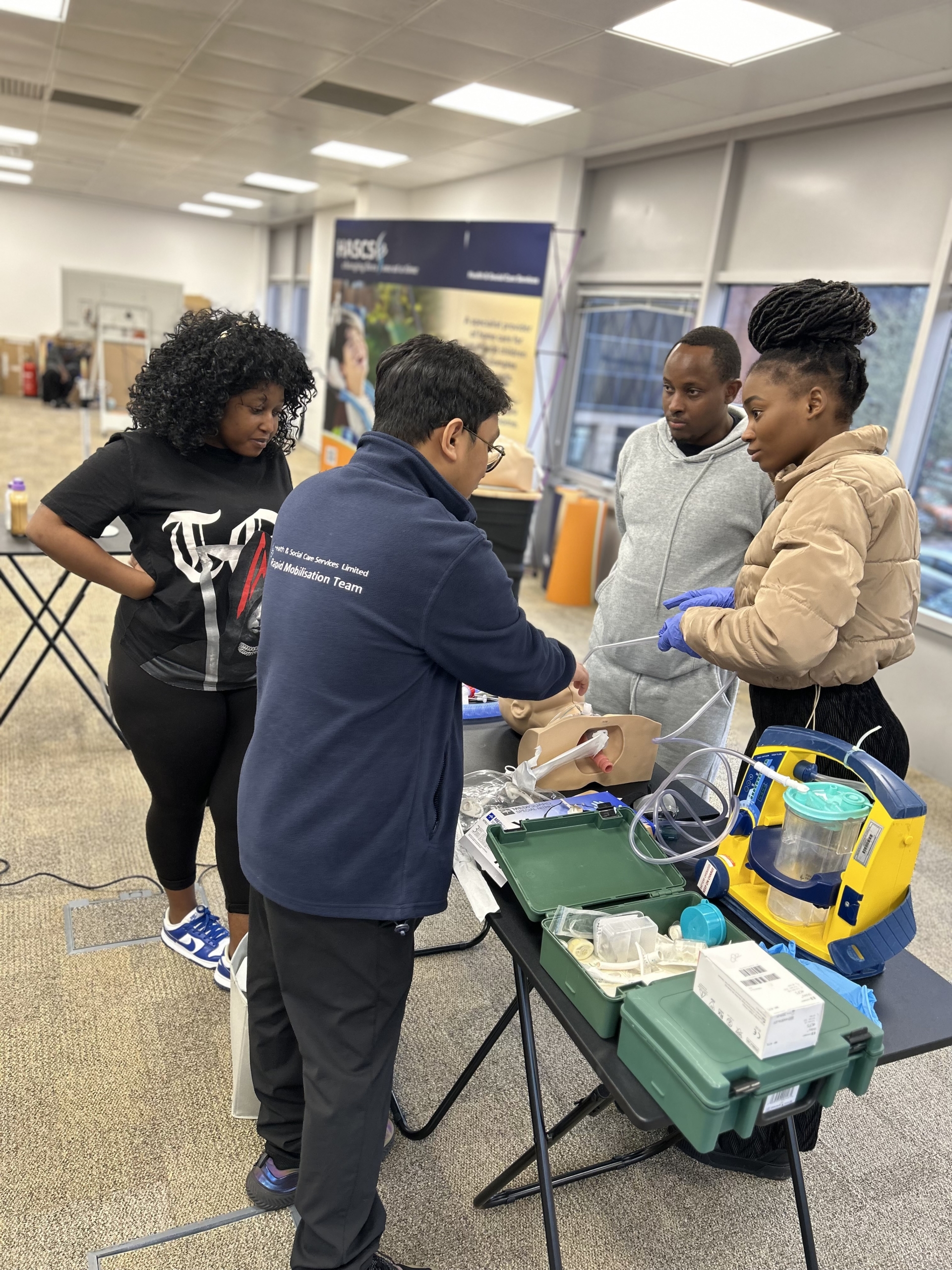Multiple Sclerosis
Multiple Sclerosis (MS) is an autoimmune condition that impacts the brain or spinal cord. An autoimmune condition is when something goes wrong with the immune system and mistakenly attaches a healthy part of the body. We do not know for certain what causes MS, but researchers believe that a combination of factors trigger the disease.

We help make the unpredictable more manageable
Being diagnosed with MS can be a challenging time, but with the right care and support from our dedicated care team, we can help to ensure you live an independent and healthy life. We can provide both personal and practical support to help life at home, helping you to live life how you wish and maintain your daily routines.
We can support a healthy diet, regular exercise, and other wellness techniques to promote emotional well-being can enhance your resilience whilst living with MS. Here at HASCS our packages are fully tailored to your unique needs, meeting your specific needs in the environment of your own home.

Latest insights
Apprenticeships: Our investment in the complex care industry
Our stories
From Healthcare Assistant to Registered Nurse with HASCS
Your kind words
Your work ethics and the vision of your company is what it should be. You clearly love what you do and the team have so much respect for your hard work. You all will always be our family.
Family of client | South West, UK
Your kind words
Health & Social Care Services Ltd have made such a huge difference to our family’s quality of life. After many years of continuous stress and battling to get the care that our disabled son desperately needed, to have an acceptable quality of life – it feels like we have suddenly ‘landed’!
Family of client | South West, UK

Our stories
Children’s Care to Adult Care: A Path to Independence
Latest insights
New to Complex Care? A Comprehensive Guide for Beginners
Complex Care Solutions
Living with Multiple Sclerosis
We have the experience and expertise to provide nurse led patient centred care for people with neurological conditions such as MS, ensuring that all clinical and social aspects of your Multiple Sclerosis care plan are provided for.
Symptoms and diagnosis of Multiple Sclerosis
MS is an unpredictable condition, each person with the condition is affected differently. It can cause a wide range of symptoms and can affect any part of the body. Some people’s symptoms will develop and get progressively worse over time, whilst others will go through periods of relapse and remission. Periods when symptoms get worse are known as relapses. Periods when symptoms improve or disappear are known as remissions.
Some of the most common symptoms include:
- fatigue
- vision problems
- numbness and tingling
- muscle spasms, stiffness, and weakness
- mobility problems
- pain
- problems with thinking, learning and planning
- depression and anxiety
- sexual problems
- bladder problems
- bowel problems
- speech and swallowing difficulties
Most people with MS only have a few of these symptoms.
Diagnosing MS is complicated because no single test can positively diagnose it. Other possible causes of your symptoms may need to be ruled out first. Some tests that may be needed for diagnosis are neurological examination, MRS scan, lumbar puncture, and blood tests.
Living well with Multiple Sclerosis
There’s currently no cure for MS, but medicines and other treatments can help control the condition and ease some of the symptoms. These include drug treatments, exercise, diet, and other lifestyle changes. Your specialists will be able to advise on which course of treatment is most suitable. Our Multiple Sclerosis care team is there to support you day to day.
Helpful Resources
Navigating your diagnosis and day to day can be a challenging time, we’re here to help answer any questions you may have. You may also find the following websites useful.
- MS Society- https://www.mssociety.org.uk/
- National Multiple Sclerosis Society- https://www.nationalmssociety.org/
- NHS- https://www.nhs.uk/conditions/multiple-sclerosis/
Referrals
Speak to our care professionals for comprehensive care solutions tailored to your needs
We welcome referrals from case management teams, local authorities, NHS Trusts and integrated care boards, charities as well as directly from the home and family. Upon referral, our team will contact you, where they can talk you through the entire process and guide you through each stage, as well as answering any questions you may have.

